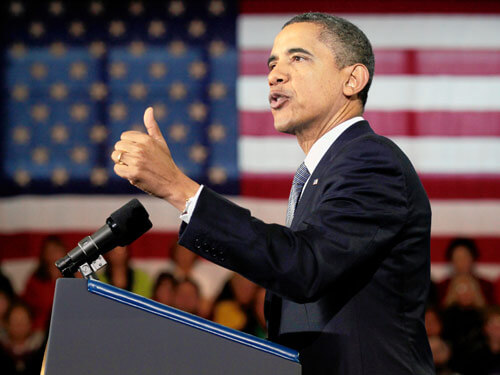Robert Gates, the former secretary of defense, finds himself on a bit of a mission impossible these days. Ever since his voluminous memoir, “Duty,” was recently released and media people hooked into criticism Gates included of both President Obama and Vice President Biden, he has been trying to make the case that calling him out for such criticism, particularly with respect to the president, wasn’t altogether justified. He submits that the book overwhelmingly reflects strong support he maintained for Obama’s Afghanistan policy — an area that, as highlighted in those front-page reports, his memoir alluded to some variance with the president.
The round of interviews Gates has been doing to try to alter the narrative surrounding the book’s raison d’etre doesn’t figure to achieve a whole lot in that regard. Not that the former cabinet secretary hasn’t been painting a good picture of himself as a dedicated public servant, as loyal to President Obama, after he was asked to stay on as defense secretary, as he had been to Obama’s predecessor. But there has been no shortage of raised eyebrows over Gates’ decision to have his memoir published while Obama was still in office. A feeling evidently persists that, despite complimentary remarks about the president, Gates had set about a calculated tarnishing of Obama with those blind-side hits. So when, for instance, Gates responded to Charlie Rose’s querying of the timing by noting that there would be other cabinet colleagues releasing books while Obama was in office, it surely wouldn’t have done much to convince skeptics that doubts about Gates’ motives were misplaced.
Given the public persona of Gates that we’ve been dealing with since circumstances overwhelmed the George W. Bush presidency to the point of cutting loose Donald Rumsfeld, the new defense secretary seemed a welcome respite from Rumsfeld’s in-your-face hawkishness. Gates conveyed an easy-going manner as head man at the Pentagon that made Obama’s decision to have him serve in the new administration not at all surprising. Gates appeared to epitomize the type of Republican moderate who could fit seamlessly into a progressive Democratic administration — a dying breed in today’s GOP brand that we have much lamented in this space. As such, Gates would hardly be someone’s educated guess of a player likely to take early aim on a president he has served. But, expectations notwithstanding, here he is, doing just that, and holding firm to his contention that those promoting the negative takeaway from what he has written have it all wrong.
Gates said of the president’s conduct of the war in Afghanistan, that Obama wasn’t displaying enough of an identification with the troops and passion for their sacrifice. He thought there should have been more of a sense conveyed to the troops that they were involved in a mission designed to have a successful outcome. Gates said he was also not very pleased about the Obama administration (which, he acknowledged, wasn’t singular in this) interfering in and attempting to micro-manage the military’s chain of command. He also revealed he came close to quitting in 2009 when the administration, in reviewing the Afghanistan war, made him uneasy about how out of touch the Obama team was with the “unpredictability of war.”
Even so, Gates insists that his overall appraisal of President Obama is a positive one. He describes the president as being “analytical” in his decision making and thinks Obama was “courageous” in some of the moves he made as commander in chief. Gates feels that in taking him to task about his memoir, critics have cited portions which, although accurate, were “taken out of context.”
If those were pot shots Gates took at Obama, he clearly resorted to heavier artillery to be trained on Biden. The vice president probably thinks Gates’ characterization of him as a “man of integrity” to be faint praise. Understandable, perhaps, in light of the damning putdown Gates reserved for the vice president:”He has been wrong on nearly every foreign policy and national security issue over the past four decades.” It’s reasonable conjecture that fueling some of that bitterness was the two men being on opposite sides of an Afghanistan troop increase debate early in Obama’s first term, Gates pushing for a major infusion and Biden advocating smaller numbers for tactical deployment. Bypassing the merits of Gates’ claims about Biden’s foreign policy/national security credentials, one realizes instantly that Gates considers Biden a lightweight.
Look, it’s the guy’s opinion, rationally or otherwise shaped. However Gates tries to parse it, his memoir is no bouquet to the Obama administration. And that too is very much in order. What’s not cool is the ex-defense secretary making like his book’s release one year into Obama’s second term is no big deal, as far as negatively impacting the administration. Regardless of how much high-fiving of Obama was included in the memoir, Gates couldn’t possibly be dumb to how the thing would play: that the media would be drawn to and run like thieves with the bashing. Having had a long career in government and serving a few presidents, no way would Gates be clueless about what sells in the politics game.
One TV commentator said that at the end of the day, Gates could not but revert to partisan Republican ways. Let’s not forget, that’s what he is.
























